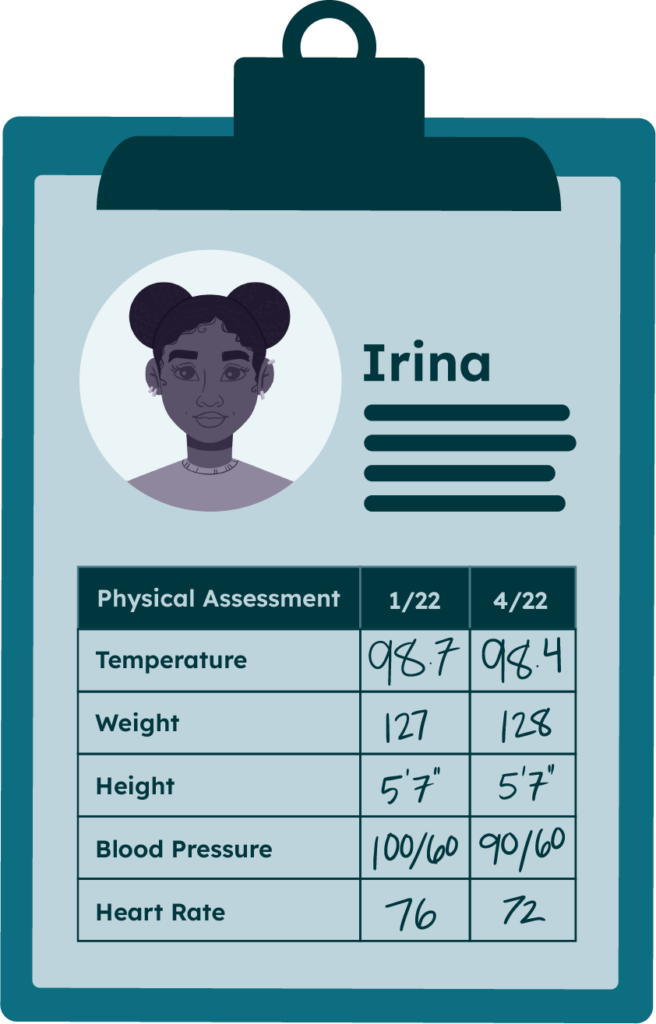When it comes to choosing a healthcare provider or clinic, patients carefully weigh their options. After all, this is an investment in their health and well-being. When information is just a click away, the influence of patient testimonials on this decision-making process can be profound and far-reaching.
Findings by the Medill Spiegel Research Center underscore this trend, showing that displaying consumer-generated evaluations on your website can increase conversion by 270%. The same research points out that nearly 95% of online users consult patient testimonials before making their healthcare decisions, highlighting the power of personal experiences and stories in shaping public perception.
In the modern healthcare consumerism landscape, standing out and building trust among your patients and their families is of the highest priority. In this process, patient testimonials can serve a dual purpose—in addition to building credibility, they also bring a human touch to medical care and bridge the gap between clinical services and personal patient experiences.
However, using the full potential of patient testimonials requires proactive measures. Beyond providing top-quality care, you must encourage patients to share their experiences and measure their satisfaction. With the help of carefully crafted patient surveys, you can collect invaluable feedback, which, in turn, can be transformed into compelling testimonials that resonate with potential patients and show your commitment to patient-centered care.
Transformative Impact of Patient Testimonials
Patient testimonials serve as a direct line of communication with your customers, offering invaluable insights into their experiences with your healthcare organization. If you use them wisely, they can help you grow your practice, establish trust with your patients, improve patient-provider relationships, as well as inspire both patients and healthcare professionals alike.
Attract New Patients
Today’s consumers trust online reviews and testimonials as much as personal recommendations. Patient testimonials provide a sense of relatability and emotional connection, which can influence prospective patients in their decision-making process. When potential patients read about positive experiences from others who have received care from your medical practice, they’re more likely to choose your services.
Use Social Proof to Foster Trust
Testimonials play a crucial role in establishing credibility for your healthcare organization. When patients share their success stories, they provide social proof that your practice delivers high-quality care and positive outcomes. One study shows that positive online reviews influence the purchasing decisions of 63% of customers. Testimonials act as powerful endorsements that build trust and reassure prospective patients that they’re making the right choice.
Humanize Healthcare
 Healthcare, fundamentally, is about people and their stories. Each medical chart or procedure represents a unique individual with their own hopes and fears. Patient testimonials have the power to highlight these personal stories, emphasizing that healthcare isn’t solely about treatments and technology, but also about fostering genuine human connections. This aspect of testimonials serves as a reminder that healthcare is as much about emotional and personal well-being as it is about clinical outcomes.
Healthcare, fundamentally, is about people and their stories. Each medical chart or procedure represents a unique individual with their own hopes and fears. Patient testimonials have the power to highlight these personal stories, emphasizing that healthcare isn’t solely about treatments and technology, but also about fostering genuine human connections. This aspect of testimonials serves as a reminder that healthcare is as much about emotional and personal well-being as it is about clinical outcomes.
Motivate Change with Patient Experiences
Patient testimonials are more than tools for attracting and reassuring patients; they can also play an important role in inspiring action. For someone on the fence about a particular treatment or unsure about which healthcare provider to choose, hearing another patient’s story could be the nudge they need to take that crucial step toward their health and well-being. At the same time, patient testimonials can benefit patients who share their stories. Describing personal experiences can be therapeutic, giving patients a sense of purpose and the feeling that their story might help someone else.
On the other hand, patient testimonials also have a significant impact on healthcare professionals. Research by the National Institutes of Health highlights the importance of patient feedback in directly influencing medical performance. When confronted with patient stories, healthcare professionals gain a deeper understanding of the effects of their care, both positive and negative. By actively listening to and learning from patient experiences, you can change your approaches, refine your practices, and ultimately deliver better care. This environment, where feedback is valued and acted upon, benefits everyone involved as patients receive better care, and providers grow professionally.
Secure Genuine Testimonials through Patient Surveys
Creating a patient-centric environment is crucial for encouraging patients to share their experiences. Train your staff to provide not only outstanding medical care but also personalized attention. This level of care often leads to positive experiences, which in turn, are the foundation of compelling patient testimonials. Alongside this, creating an atmosphere that encourages and values patient feedback makes patients more likely to engage and share their experiences.
The next crucial step is to incorporate patient surveys into your practice’s routine. In addition to encouraging patients to provide feedback, patient surveys can help identify patients who are particularly satisfied with their experience. It’s often they who are more inclined to share positive stories and provide powerful testimonials that highlight the strengths of your medical practice.
To increase the effectiveness of patient surveys, formulate open-ended questions that encourage detailed responses. These questions should aim to elicit specific aspects of the patient’s experience, such as satisfaction with care, the level of communication, and overall impressions of the facility.
Make sure that patient surveys are easy to access and not overly time-consuming. Send them out shortly after the patient’s experience when the details are still fresh in their memory to ensure more accurate testimonials. Also, consistently distribute surveys at regular intervals to maintain a steady flow of feedback and capture a range of experiences.
Before using patient feedback publicly, always ask for informed consent. Respecting privacy and confidentiality ensures compliance with the necessary healthcare laws and regulations. Finally, regularly review the feedback from surveys to identify areas for improvement in patient care and services and show patients that their feedback is valued by implementing changes where necessary and communicating these improvements back to them.
Bring Your Healthcare Marketing to the Next Level
While you can use different ways to engage and attract patients, a personal and sincere review from a satisfied customer stands out as the most compelling asset in your healthcare marketing strategy. Once you have collected these valuable testimonials, the next crucial step is using them effectively. Here are some steps to ensure that patient testimonials resonate with your target audience:
Showcase Real-Life Experiences on Your Website
Placing patient testimonials and patient success stories strategically on your healthcare organization’s website can immediately capture the attention of visitors and lend instant credibility to your services.
Consider creating a special landing page that exclusively showcases these narratives, offering potential patients a window into real-life experiences. Video testimonials, in particular, can be extremely powerful as they capture the patient’s emotions and experiences in a way that text alone can’t. You can also integrate these testimonials into your blog or resources section to add more authenticity and social proof, enhancing reader engagement and trust.
Use Patient Voices on Social Media
Modern consumers increasingly turn to social media to make informed decisions, so sharing patient testimonials across social channels can significantly broaden your reach.
For example, you can create engaging Instagram reels using video testimonials, craft X threads featuring patient quotes, or share text testimonials with accompanying images on Facebook. Also, tagging healthcare professionals involved in these stories can add a personal touch and enhance the impact.
Connect Through Traditional Channels
Despite the dominance of digital media, the impact of traditional methods like direct mail shouldn’t be underestimated, particularly when it comes to reaching diverse demographic groups. Direct mail, with its physical and tangible nature, offers a unique way to connect with patients, especially those who may not be as engaged online, such as older patients.
Incorporating patient testimonials into direct mail materials like newspapers, brochures, and postcards brings a personal and relatable touch to these formats. Moreover, the act of receiving a physical piece of mail can have a more lasting impression than digital content, which is often quickly scrolled past. This method provides an opportunity for potential patients to engage with the material containing patient testimonials at their leisure, allowing the message to sink in more deeply.
Emphasize Authenticity and Diversity
To make effective use of patient testimonials, opt for genuine patient narratives, even if they appear less polished, rather than scripted or staged stories. The natural expression of a patient’s experience, with its genuine emotions and unfiltered perspectives, makes your healthcare services appear more trustworthy and approachable.
In addition to authenticity, diversifying the stories you share is crucial. Healthcare experiences are as different as the patients themselves, and not every patient’s story will resonate with every viewer. By featuring testimonials from a wide array of patients—encompassing different age groups, health challenges, or ethnic backgrounds—you ensure that your healthcare marketing appeals to a broader spectrum of potential patients.
Prioritize Patient Privacy
To responsibly use patient testimonials in healthcare marketing, you have to uphold patient privacy. Before you consider sharing any testimonial, it’s critical to obtain explicit consent from the patient.
When doing this, make sure that patients are fully aware of how their stories will be used and where they’ll be shared. It’s important to provide them with the flexibility to decide which details of their experiences they are comfortable sharing publicly. If there are aspects of their stories they prefer to keep private, omit them without question. Don’t forget that a patient’s willingness to share their story is a privilege, not a right, and treating it as such is crucial for maintaining the integrity and trustworthiness of your healthcare marketing efforts.
Improve Care and Credibility with Patient Insights
Incorporating patient testimonials into a healthcare marketing strategy goes beyond the objective of increasing patient numbers or enhancing a healthcare organization’s reputation. These testimonials bring a dimension of authenticity and relatability that can profoundly resonate with potential patients, instilling a sense of confidence and trust in the services offered.
The role of patient surveys in this process is equally important because they are the means through which genuine stories are gathered. They provide a voice to patients, allowing you to capture real experiences that reflect the quality of care and the impact it has on lives. This dual approach of using patient surveys to gather testimonials and then incorporating them into your marketing strategy creates a powerful narrative that can transform how your healthcare organization is perceived and trusted in the community.
To make these efforts straightforward, you can use SocialClimb’s comprehensive healthcare marketing platform, with its advanced patient survey features. This way, you can thoroughly assess the patient experience, identify areas for care improvement, and make informed decisions based on solid survey information. Our centralized reporting system simplifies the interpretation and application of this data, fostering continuous improvement in care. With SocialClimb, you can improve your healthcare marketing and transform patient feedback into actionable insights, propelling your practice towards excellence in patient care and community trust.











